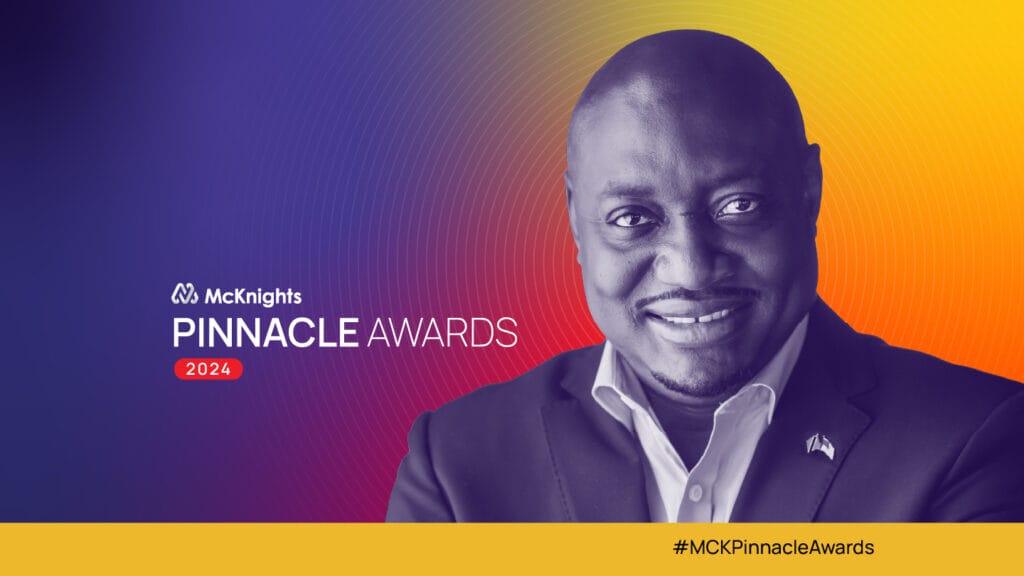The month of November honors veterans and their families, and home care professionals should be aware of seven ways they can help these wartime heroes navigate the Department of Veterans Affairs (VA) and receive the benefits they rightly deserve.
The VA has considerable benefits for aging veterans and their surviving spouses for long-term care, yet many are unknown and underutilized. Here’s what senior care professionals should know:
1. Don’t assume veterans or their survivors will be notified by the VA if they are eligible for benefits. Unlike Social Security and Medicare, the VA typically does not advertise or notify those who may be eligible but have not applied for benefits.
2. Be sure to check with all three VA branches for available benefits. This includes the Veterans Benefits Administration (VBA), Veterans Health Administration (VHA) and the National Cemetery Administration (NCA). For example, an aging veteran may receive benefits for an in-home caregiver through both the VHA and the VBA at the same time. A social worker at the VHA may not know about programs through the VBA and vice versa.
3. Aging veterans receiving Disability Compensation payments may eventually need more help at home and can apply for Special Monthly Compensation (SMC) or a higher amount also known as Aid and Attendance. Aid and Attendance can help with activities of daily living such as bathing, dressing, moving about, meal preparation, light housekeeping and more. It’s widely known that the VBA pays disability compensation for those who suffered a service-connected disability for a disease or injury due to military service. The Aid and Attendance benefit isn’t widely known. Compensation payment amounts are based on the level of disability and there is no income or net worth requirement.
4. Certain wartime veterans 65 years old and older are eligible for the Aid and Attendance Pension and do not have to have a service-connected disability. Soldiers need not have gone overseas or served in combat. Even those who served at a desk stateside are eligible. The benefit pays up to $2,050 for a single veteran and $2,431 for a married veteran. Veterans must have served at least 90 days of active duty with one day during official wartime. Other medical and net worth restrictions apply.
5. Veterans’ widows (surviving spouses) are eligible to receive the Aid and Attendance Pension. The veteran must have met the criteria, the spouse should have been married at least one year and married at the time of the veteran’s death. While survivors can’t get care from a VHA medical facility, they can get benefits to cover custodial care. The benefit pays up to $1,318 per month. Other medical and net worth restrictions apply.
6. Before filing a VBA claim, consider filing a short “Intent to File” form which can start the clock and set an earlier effective date for you benefits. The longer VBA claim need not initially be filled out. Completing a VA claim can take months. By filing the Intent to File – VA Form 21-0966 prior to an application for Disability Compensation, Dependency Indemnity Compensation (DIC), Pension or Aid and Attendance benefits, you would receive retroactive payments from the date the Intent to File form is received. This form gives veterans or their survivors one year to complete the full claim.
7. Never file a VA claim for Disability Compensation, Pension, Aid and Attendance or DIC on your own unless you have that expertise. The VA designates attorney or claims agents to represent veterans and survivors and charge a fee. Veteran service officers, who are employed by state agencies or not-for-profits, work without charging a veteran or veteran’s family. Veterans Home Care, rated A+ by the Better Business Bureau, also offers free claims filing help and other unique services for aging veterans or surviving spouses who wish to use their benefits primarily for in-home care or adult daycare.
David Laiderman is CEO of Veterans Home Care, which was founded in 2003 to help qualified wartime veterans and their surviving spouses apply for a non-service-connected disability pension from the Department of Veterans Affairs (VA), which can pay for assistance with activities of daily living in their homes. For more information: https://veteranshomecare.com, 314-514-2444, [email protected].



